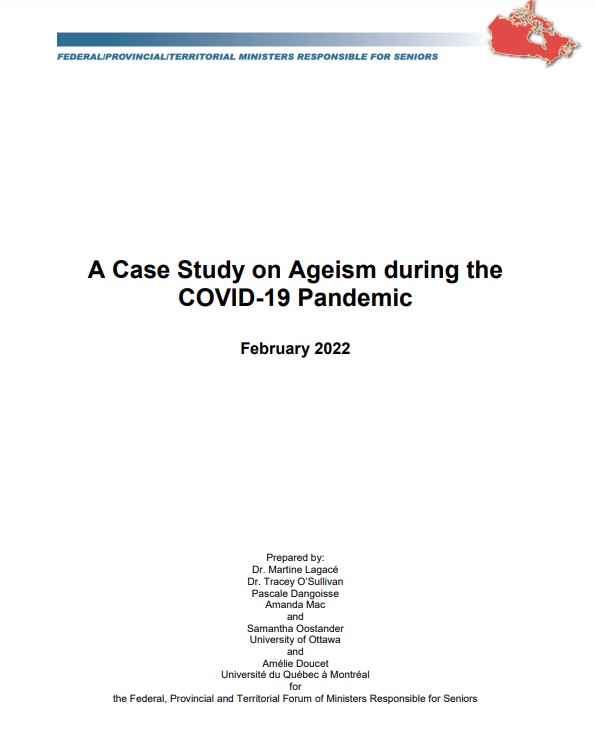- Canadian older adults were particularly impacted by the COVID-19 pandemic, with over 80% of the COVID-19 related deaths during the first wave occurring in long-term care homes. The situation generated substantial media coverage, as well as government communications and academic research
- Understanding how older adults and the aging process were framed during this health crisis is important because the public discourse can have a significant influence on an individual’s personal experience of aging and relationships with older adults. Previous studies have shown that ageist stereotypes and attitudes are often conveyed through public discourse
- The current study aims to understand how older adults and the process of aging were depicted by the Canadian media, academics, older adults (associations of older adults), as well as government representatives themselves through the first and second waves of the COVID-19 pandemic
- There are 2 main questions that guided this work:
- how did ageism emerge as an issue during the COVID-19 pandemic in the media, research, among older adults, associations of older adults and Federal, Provincial and Territorial (FPT) governments’ communications?
- how did the media, researchers, older adults, associations of older adults, and FPT governments contribute to, or address ageist attitudes, behaviours or discourse?
- To answer these questions, researchers conducted a content analysis of Canadian public documents related to COVID-19 and older adults, published from April to December 2020. These public documents included opinion-editorials (authored by journalists or older adults or associations of older adults), academic articles, and government communications (press briefings and communications generated by Federal, Provincial and Territorial ministries and departments)
Source: Federal/Provincial/Territorial Ministers Responsible for Seniors Forum


















